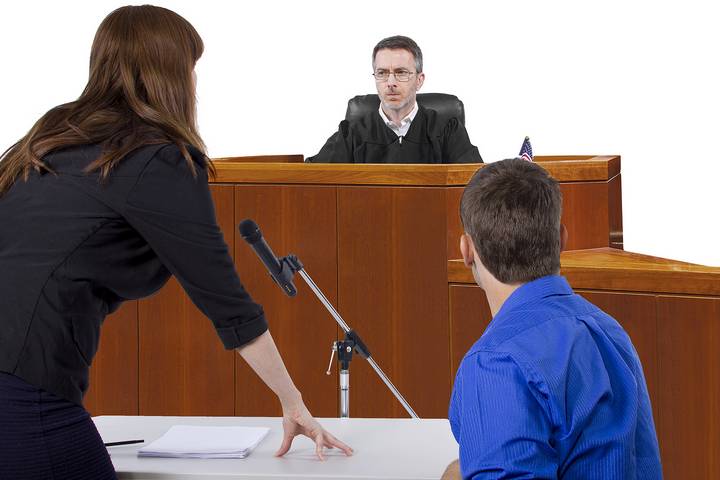A Guide to Perjury Consequences in Canada

Have you been accused of making false statements to a police officer or in a court of law? These serious allegations come with severe penalties, so you need legal representation to sort the matter out.
Perjury, or foreswearing, is defined as the wilful giving of false testimony under oath or affirmation, before a competent tribunal, upon a point material to a legal inquiry. In layman’s terms, you lied under oath. What can happen to you?
Here are the consequences of perjury in Canada:
What is Perjury?

There are several perjury definitions according to the Canadian Criminal Code dealing with Misleading Justice, which have to do with lying to the police, and or the court:
Perjury defined under the Criminal Code: Section 131 (1) Subject to subsection (3), everyone commits perjury who, with intent to mislead, makes before a person who is authorized by law to permit it to be made before him a false statement under oath or solemn affirmation, by affidavit, solemn declaration or deposition or orally, knowing that the statement is false.
(1.1) Subject to subsection (3), every person who gives Evidence under subsection 46(2) of the Canadian Evidence Act or gives Evidence or a statement under an order made under section 22.2 of the Mutual Legal Assistance in Criminal Matter Act, commits perjury who, with intent to mislead, makes a false statement knowing that it is false, whether or not the false statement was made under oath or solemn affirmation by subsection (1), so long as the false statement was made by any formalities required by the law of the place outside Canada in which the person is virtually present or heard.
(2) Subsection (1) applies whether or not a statement referred to in that subsection is made in a judicial proceeding.
(3) Subsections (1) and (1.1) do not apply to a statement referred to in either of those subsections that is made by a person who is not specially permitted, authorized or required by law to make that statement.
Fabricating Evidence under the Criminal Code
Section 137 Everyone who, with intent to mislead, fabricates anything with the intent that it shall be used as Evidence in a judicial proceeding, existing or proposed, by any means other than perjury or incitement to perjury is guilty of an indictable offence and liable to imprisonment for a term not exceeding fourteen years.
Criminal Code, R.S.C., 1985, c. C-46
If a person asked to testify under oath makes untruthful statements, and they may have committed the criminal act of perjury. Like any other criminal act, you can be charged if it is discovered and proven that you have lied. If a person intentionally misleads justice by saying untruthful statements in a judicial proceeding, he or she is guilty of an indictable offence of perjury. You should contact a Brampton criminal lawyer to proceed with the next steps.
Mens Rea

Men’s rea, from the Latin “guilty mind,” is the mental state of a person who intends to commit a crime. For it to be considered a crime, a person must know that one’s action or lack thereof would cause a crime to be committed. It is, in fact, a necessary element.
For a conviction of perjury, there must be an intention not only to commit the act but also actually commit it. If any other statements not material to the legal proceedings are a lie, it is not considered perjury. This includes an interpretation of facts, as honest mistakes or inaccurate conclusions can be made without the intent to deceive.
Perjury, Bribery & Contempt

Another form of perjury is when the accused intentionally gives untrue statements and misleading information to protect themselves or someone else. Perjury, along with bribery and content, often go hand in hand.
Bribery
The goal of interfering with justice by using bribery can be a part of perjury. This is because money is offered or accepted and some other inducement, so a person testifies untruthfully.
Contempt
Contempt is any disrespect shown toward the court and can be applied to a witness, lawyer, offender or even a public member.
Penalties
Because perjury may usurp the court’s power and produce a miscarriage of justice, a guilty verdict carries a heavy punishment. A person committing perjury is guilty of an indictable offence, leading to imprisonment for a maximum term of 14 years. This conviction will not happen from the Evidence of one witness unless it is corroborated by other Evidence that implicates the accused.
In bankruptcy cases, a debtor may sign documents that contain false or incomplete information and be charged with perjury if proven. If convicted, they can get up to 5 years in prison and a fine and may even have to pay restitution if the act of perjury caused someone harm. Other rights may be taken away, including the right to own a firearm and their right to vote.
As you can see, the consequences of perjury are severe, so you must seek legal counsel to deal with these allegations. A qualified defence lawyer has the expertise to help navigate your case and bring about the most favourable outcome.


